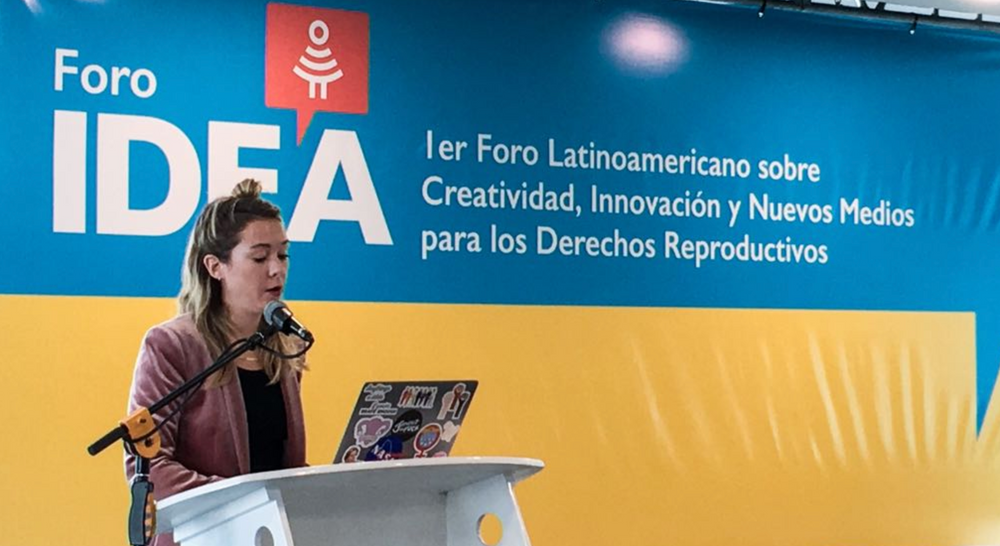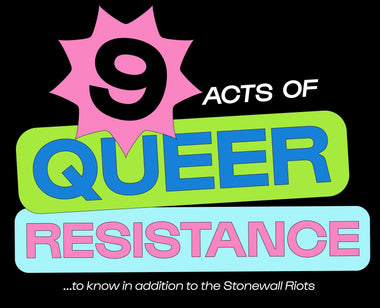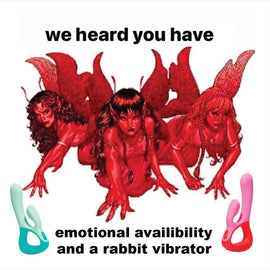5 Facts from Planned Parenthood's Global Summit

Planned Parenthood's Global office reached out to me several months ago after Unbound was on the cover of the NY Times representing The Women of SexTech. They were organizing the first ever global conference focused on entrepreneurship specific to reproductive rights in Latin America. They wanted inspirational speakers to share their stories and asked if I would be up for it.
Actual footage of my reaction: 
I am a PP fangirl at my CORE. I would drink approximately 7-9 gallons of Hidden Valley Ranch dressing for the opportunity to meet Cecile Richards. Hell, we even sent 1,500 vibrators to Washington DC donating $12,512 to Planned Parenthood just three months ago.
So, yes, obviously I had to go. This required dusting off my ol' Español textbook and writing a (hopefully) inspirational speech that wouldn't come off as a bunch of random vocabulary words strung together.... "Hola! My llamo Polly. Tenía un aborto y cáncer y despues yo jugué baloncesto, fui a la playa, y lavó los platos..."

I wrote the speech over the course of a week and had a lot of help editing it (thanks Hannah and Kamila!!). Truth be told, it was a pretty brutal performance, but I told myself that it is better to try and fail than to never try at all.
More importantly, ForoIDEA was an absolutely incredible experience. Over the course of two days, over 25 industry leaders shared their experiences and insights across media, startups, design, innovation, and investment. Startups focused on changing reproductive health pitched for the chance to win $15,000 in funding which provides them with SIX MONTHS OF RUNWAY (as opposed to 1/8 of a wework office for a couple weeks here in NYC).
I was humbled by the conversations I had with all kinds of women and so I'd like to share the top 5 things I learned because knowledge = power.
1. Planned Parenthood protects women everywhere, not just in the United States
I always thought that PP's focus was only within the US, so it was incredible to learn that the dollars we give them have a global impact. They do this not by inserting themselves in other countries, but by teaming with over 100 local organizations on the ground that champion reproductive health. Today, their focus is primarily on Africa and Latin America.
2. Pregnancy is the leading cause of death for adolescent girls worldwide
Nearly 70,000 girls die every year from complications related to pregnancy and childbirth
3. Women lack access to quality employment. Many are paid less than $1 per hour

Remember those friendship bracelets that would take you literally 3 weeks to make at camp as a kid? In Ecuador, making jewelry is one of the ways refugees and women make money. However, in order to make ONE DOLLAR, they must make TWELVE of these bracelets.
4. Abortions are illegal in South America

Unless the woman's life is in critical danger, abortions are illegal in South America. This is largely attributable to the incredibly religious and specifically Catholic culture that permeates the continent. For me, denying a woman the right to choose what is best for her and her body is inexcusable.
5. We are more alike than we are different

Of course, the scales are vastly different. If anything, being in Quito made me realize how unbelievably lucky we are to be born in the United States. The advantages we're given as a result of being citizens of this country are incredibly unfair.
However, as women, we all face the same challenge: the systemic abuse of power over a woman's body. As someone who had an abortion at age 18, I can say it was one of the worst days of my life. I didn't get out of bed for a week, ashamed and distraught over what I had done. For me, being pro-choice doesn't mean being pro-abortion. I don't believe anyone is pro-abortion.
But I trust women.
I trust that they know what is best for their body and their future. Being in Quito reminded me how infuriating it is to live in a world where men in government adamantly believe they know what is best for women. It reminded me that denying women access to birth control and abortion is a mechanism to keep them in poverty.
And even though we are still fighting the same fight women have been fighting for hundreds of years, I am hopeful. Being in Quito with Planned Parenthood gave me hope -- because even with the insurmountable odds and stigmas associated with female reproductive health, there are smart, brave women all over the world fighting to make it better.
By Polly Rodriguez, Unbound CEO
Learn more about Planned Parenthood Global here.

Latest Articles

A Hot and Quick Guide to BV, UTIs, and Yeast Infections

9 Acts of Queer Resistance to Know in Addition to the Stonewall Riots













